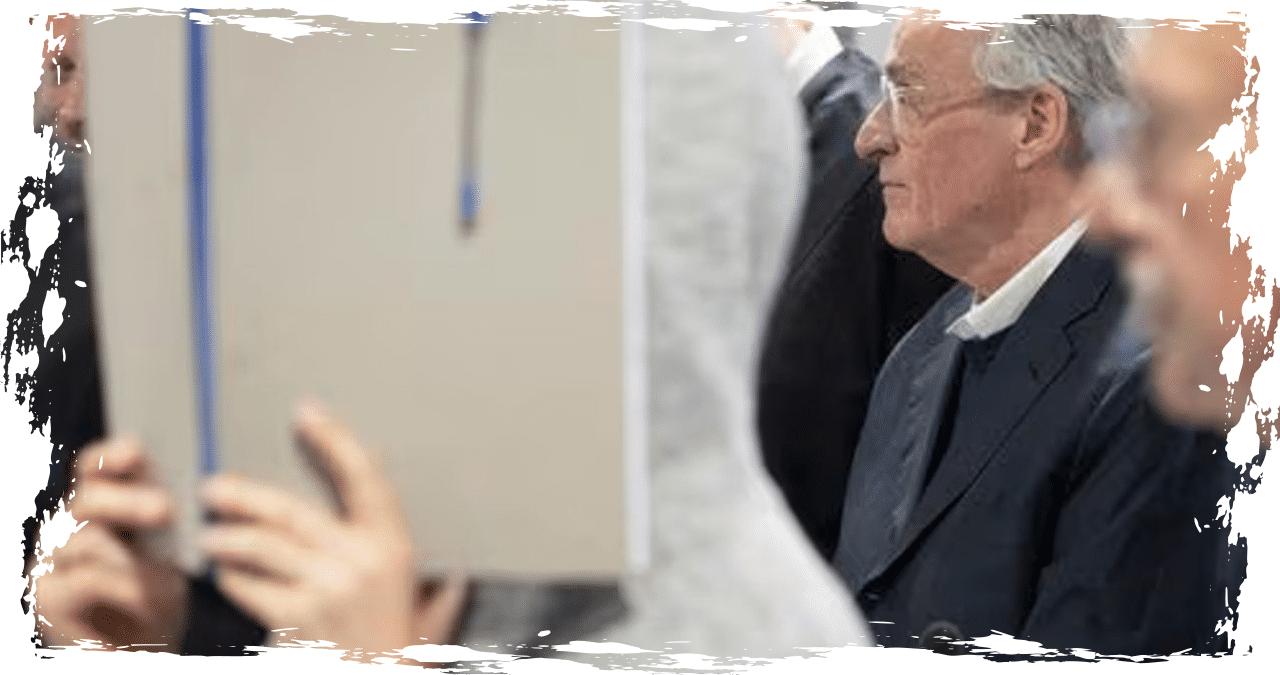The trial of the alleged leaders of a suspected far-right plot to overthrow the German government is set to begin in Frankfurt on Tuesday. This high-profile trial has captured the attention of the nation since it first came to light in late 2022.
Nine defendants will appear before judges at a dedicated temporary courthouse, constructed to handle the considerable volume of defendants, legal representatives, and media involved in the case. The trial, which is anticipated to continue until at least 2025, will see approximately 260 witnesses testifying. This trial is part of a series of three interconnected trials, involving over two dozen suspects in total.
A PRINCE, AN EX-LAWMAKER AND FORMER SOLDIERS
The alleged plot involves several high-profile suspects, including Heinrich XIII Prince Reuss, whom the group purportedly aimed to install as Germany’s interim leader. Other defendants implicated in the case are Birgit Malsack-Winkemann, a judge and former lawmaker affiliated with the far-right Alternative for Germany party, as well as former German military officers.
Most of the individuals are facing charges for being part of a terrorist organization that was established in July 2021. The organization’s objective was to forcefully overthrow the current state order in Germany. Additionally, they are accused of preparing for a treasonous act. Reuss, along with another suspect who is a former paratrooper, is believed to have played key roles as leaders within the group.
The accused, according to prosecutors, held strong beliefs in a collection of conspiracy myths, which included Reich Citizens and QAnon ideology. They were firmly convinced that Germany is under the control of a “deep state.” The Reich Citizens movement followers reject Germany’s postwar constitution and have been advocating for the overthrow of the government. QAnon, on the other hand, is a worldwide conspiracy theory originating from the United States.
STORMING PARLIAMENT AND NEGOTIATING WITH RUSSIA
According to prosecutors, the group had planned to forcefully enter the parliament building in Berlin and apprehend lawmakers. Their alleged aim was to engage in negotiations for a post-coup arrangement, with Russia being one of the primary countries involved due to their status as an allied victor of World War II.
The alleged plotters reportedly had a funding of around 500,000 euros ($543,000) and had access to an arsenal that included 380 firearms and nearly 350 weapons suitable for stabbing. They also possessed equipment such as bulletproof vests and handcuffs. According to federal prosecutors, the group had prepared multiple “lists of enemies” to be targeted during their planned takeover of regional and local authorities. It is stated that the members of the group were fully aware that the seizure of power would involve the killing of individuals.
In 2022, Reuss attempted to reach out to Russian officials in order to gain their support for the plan. It remains uncertain whether Russia responded to these efforts, as stated by prosecutors.
A Russian woman, among the defendants in Frankfurt, stands accused of supporting a terrorist organization. One of the alleged ways she aided the group was by setting up a contact with the Russian consulate in Leipzig and accompanying Reuss to the consulate.
ONE ALLEGED PLOT, THREE TRIALS
The Frankfurt trial, which is the most well-known, is the second out of three trials that are centred on the plot to open. These trials include a total of 26 suspects, originally it was 27 but unfortunately, one of the charged individuals in Frankfurt passed away before the trial.
The trial in Stuttgart, which started in late April, is currently centered on the “military arm” of the plot. Prosecutors argue that this group was responsible for carrying out the plans devised by the alleged leaders.
The remaining eight suspects will face trial in Munich, starting on June 18th.
WIDER FAR-RIGHT WORRIES
Authorities in Germany have been sounding the alarm about the significant threat posed by far-right extremists to the country’s domestic security. This concern was further validated when a series of arrests were made in December 2022, unveiling an alleged coup plot. The apprehensions shed light on the gravity of the situation and highlight the urgent need to address this issue effectively.
In 2019, a regional politician was killed, and a synagogue was targeted in a violent incident, underscoring the ongoing threat posed by extremists. A year later, during a protest against pandemic restrictions, far-right extremists attempted to breach the parliament building in Berlin, but were ultimately unsuccessful.
Five individuals stood trial in Koblenz one year ago for their involvement in an alleged conspiracy orchestrated by a group known as United Patriots, which authorities claim is associated with the Reich Citizens movement. The group had planned to carry out a far-right coup and abduct Germany’s health minister.
Mass protests against the rise of the far-right were sparked in January when a report revealed that extremists had convened to discuss the deportation of millions of immigrants, including those with German citizenship.
According to reports, certain individuals from Alternative for Germany were present at the meeting. The party, which has gained significant popularity in recent times, made efforts to disassociate itself from the event while also criticizing the way it was portrayed in the media.



